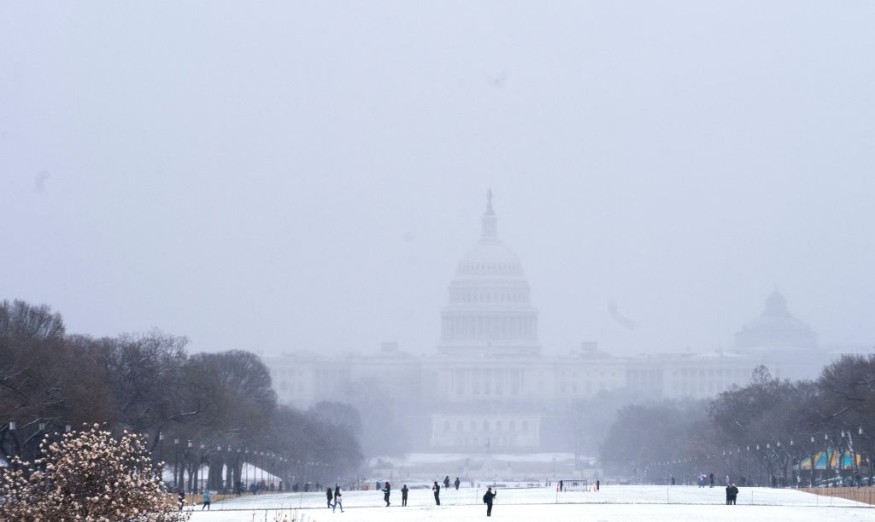Cooler winter weather could fall into a dozen states across the coming winter season, according to a weather outlook report by the National Oceanic and Atmospheric Administration (NOAA). Released on Thursday morning, October 20, the report shows the temperature drop in different parts of the United States will yield to increased energy consumption amid rising energy costs due to the war in Ukraine.
However, one of the main factors for the energy crisis affecting American consumers are Russian President Vladimir Putin's shutdown of Russian gas for Europe. Putin cuts off gas supplies to the Europeans by shutting down Nord Stream 1, Russia's largest gas pipeline to Europe. The ongoing global energy crisis has been a problem since 2021 but is aggravated by the Ukraine-Russia conflict.
The NOAA outlook means that since it requires energy to heat up one's house or establishment, more heat and energy is needed when the surrounding environment is colder. This is especially the case during winter, which approximately spans from December to February in the US and other parts of the Northern Hemisphere. As a result, Americans will have to conserve energy to adjust with the crisis.
This year's winter could see planned rotating power outages or blackouts in affected US states. These measures may serve to conserve energy since winter is the coldest season of the year, when temperatures could to freezing or sub-freezing temperatures. The cold weather is only a part of the myriad of weather hazards like blizzard, rain showers, and snowfall during winter.
Cooler Winter Weather

Andrew Dessler, a professor at Texas A&M University, told CNN that Putin closed its gas for the European continent but they still need gas. As a result, they are still going to buy US gas, which will spike US gas prices for American consumers.
Dessler asserts that the said correlation between cold, heat, and energy is bad news for US consumers. Based on the NOAA report, the cooler winter weather could affect people from Oregon to Michigan. The coldest season could even affect cities like Seattle, Minneapolis, Milwaukee, and Portland.
In its official reported entitled US Winter Outlook: Warmer, drier South with ongoing La Nina on Thursday, the NOAA said below-normal temperatures are expected from the Pacific Northwest and eastward to the western part of the Great Lakes region and into the Alaska Panhandle.
Global Energy Crisis
Rising energy costs in the US was brought about by the ongoing global crisis which started in the aftermath of the novel coronavirus disease (COVID-19) pandemic in 2021, when most parts of the world faces shortages and increased prices in the oil, gas, and electricity sectors.
As sanctions against Russia grows following its invasion of Ukraine in late February 2022, the former Soviet Union country searched for alternative measures when it comes to production and demand of oil.
Recently, OPEC+ decided to cut output of its oil production, which could push the global economy into recession, according to the International Energy Agency's monthly report, as cited by the World Economic Forum.
© 2025 NatureWorldNews.com All rights reserved. Do not reproduce without permission.





